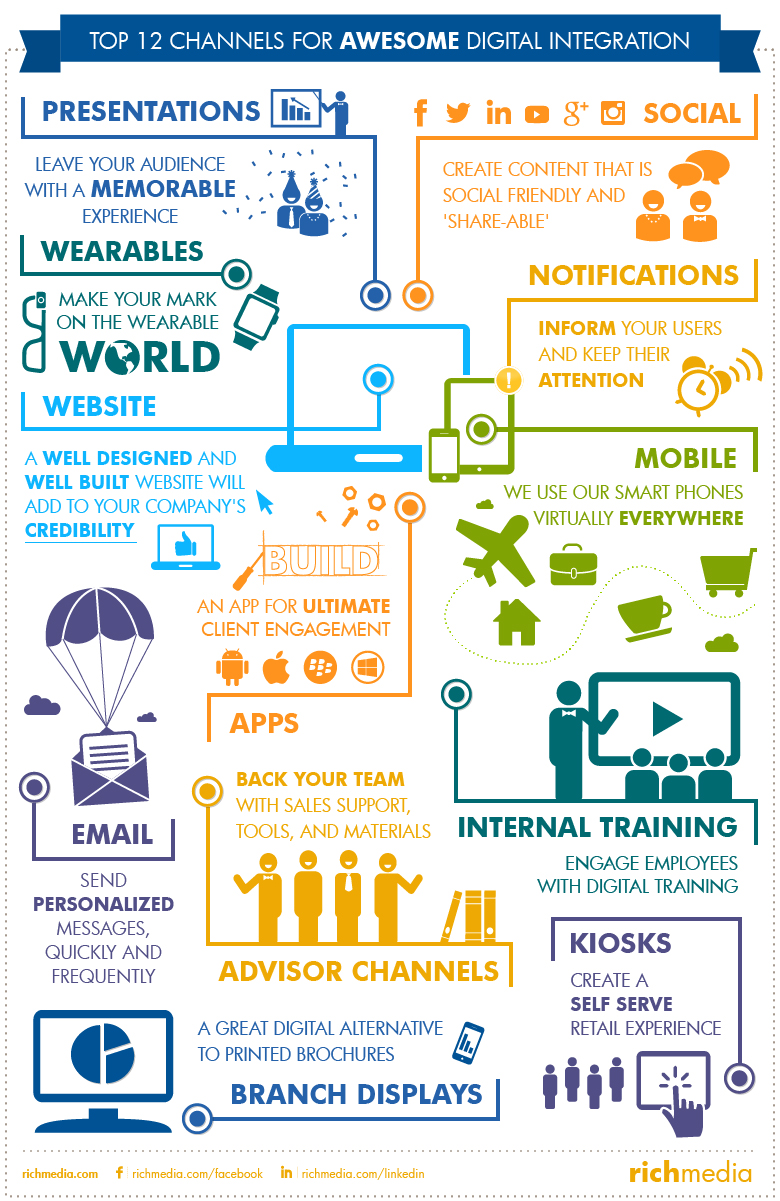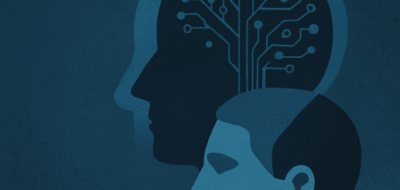Long gone is the time when computers and telephones were considered to be mere objects. Today, our smartphones and laptops have become our life partners. We have learned to talk to them and grown to expect them to surprise, entertain and advise us as well as make us feel secure. Technology has become an integral part of our emotional lives.
As a general trend, mesh networks represent a global process of people connecting with devices and services – their role is to support a range of interface processes between man and machine. These may be a thinking process, services, aids for improved perception, stimuli enhancement or access to technologies. Once a connection develops, it naturally fosters an evolution in user experience. This, in turn, fuels a further evolution and the emergence of ever-more sophisticated support technologies: conversation systems and expanded technology platforms.
Expanded technology platforms
Expanded technology platforms have become a base for any company set on integrating a digital ecosystem. Modern business organizations resemble a mosaic of diverse digital platforms which work together. Examples include User Experience, Analytical Systems and the Internet of Things. Initiatives concerning the Internet of Things, Artificial Intelligence and Conversation Systems are particularly fascinating. Companies today are making key decisions regarding which technologies to implement first to make their business more profitable, competitive and effective. The number of such solutions is set to skyrocket soon.

Omnichannel as a example of multiplatform model.
Conversation Systems
We are living in times in which computers strive to understand people rather than the other way around. Finally! To facilitate this process, technology corporations have taken an interest in solutions designed to support communication between men, machines and IT systems. One example of this is conversation systems which enable people and machines to communicate by touch, sight and/or voice. The simplest solutions of this kind, already available today, are digital assistants that respond to voice questions about the today’s date or the temperature outside. Applications of this kind are evolving rapidly and can be expected to become popular tools among both business people and scientists. Imagine telling your smartphone to find e-mails on a specific matter. The result: your mails get sorted by topic. A more complex example is that of an application that uses oral witness testimonies to build a psychological profile of a murderer that can be printed in a matter of seconds.

Conversation system based on an iPhone 4 Siri example.
The demise of interfaces?
Digital tools have undergone quite an evolution. The interesting thing is that only a decade ago, before the explosion of social media and smartphones, the line separating tools and humans was both clear and static. Today, computers actively respond to us, express our thoughts, listen to and stay close to us. It is very likely that advances in biotechnology and synthetic medicine will further blur the line between human beings and digital devices. Within two or three years, we will all be able to don headsets that will enable us to experience virtual reality intensely. And what is next? Perhaps we will live to see processors integrated into our body that directly receive signals sent by our brain. Today, I no longer consider this to be pure science fiction.
Other articles in the series of Artificial Intelligence:
– Artificial Intelligence as a foundation for key technologies
– Artificial Intelligence for all
– The lasting marriage of technology and human nature
– Technology putting pressure on business
Other related articles:
– Fall of the hierarchy. Who really rules in your company?
– A hidden social networks lurks within your company. Find it!
– End of the world we know, welcome to the digital reality
– Your clients are already in the future, and where are you?
– Work of the future – reinventing the work










Adam T
Try this one. Some good points to the discussion re future and ablilities on AI now and in few years http://waitbutwhy.com/2015/01/artificial-intelligence-revolution-1.html
John McLean
What is AI? To reason, to understand, to discover meaning, to deal with unfamiliar circumstances, and to make decisions—these are things usually associated with the human mind. The ability to do these and many other tasks is what intelligence is all about.
Mac McFisher
John. I also fear the government, so I want AI that can do what I want it to do rather than AI that can do what the government allows it to do.
Check Batin
Intersting point of view. That will require implementing robust and layered risk management controls as well as encrypting or tokenizing that data while it’s stored on the company’s servers, being used for analytics in AI environments, or shared with cloud-based services.
TommyG
I am not sure how artificial intelligence is evolving or changing or where it is heading in the future, but from what I gather their is alot more work which needs to be done before we have really intelligent machines. Perhaps we can learn from the old school of thought & use past wisdom to create the intelligent machines of the future.
Jacek B2
AI can be researched, and it is a research, in that sense it is a reality today. That it would be capable of learning anything, yes that’s possible.
Zidan78
Today we have people that recover from deep depresion thanks to stimulating certain nerves (vagus nerve). Patients live with the implanted device that simple makes them happier 🙂
There are also many other human-machine collaboration based on BCI. Have a look at: https://www.linkedin.com/pulse/human-machine-collaboration-which-you-probably-didnt-know-wawi%C3%B3rko/
Norbert Biedrzycki
Interesting example. Thank you
CabbH
I want AI that can do what I want it to do rather than AI that can do what the government allows it to do.
Or even better, an A.I. eliminates all who attempt to impose oversight and control over others. Imagine a system that is constantly at war with the top of the pyramid out to destroy all hierarchy.
johnbuzz3
Interesting point of view. What about deep learning and cognitive computing? Also whole automation topic might be relevant here as well
TomK
Conversational systems? I always thought tham my Siri was much simpler in terms of technology behind
Norbert Biedrzycki
Siri is quite complicated in terms of tech: http://www.pocket-lint.com/news/112346-what-is-siri-apple-s-personal-voice-assistant-explained
TomCat
Very interersting. The change is coming. Artificial Intelligence would be the biggest invention of human cvilization. And the last one
TommyG
A Narrative Science survey from 2016 said that 38% of companies are already using Artificial Intelligence, growing to 62% by 2018. Forrester Research predicted a greater than 300% increase in investment in AI in 2017 compared with 2016. IDC estimated that this technology market will grow from $8 billion in 2016 to more than $47 billion in 2020.
Norbert Biedrzycki
Thank you for valuable comment. AI market will grow as predicted. Again please be so kind and provide links to the sources
TommyG
Artificial Intelligence and its impact on global worldwide productivity and efficiency of labor force has been a recent obsession at the World Economic Forum in Davos. Lots of discussions
TommyG
Exciting is the use of AI algorithm on a mobile device, but to achieve this we would have to build an app and test its accuracy directly from a mobile device
CabbH
I believe that computational neuroscience/neuromorphic community is more concerned with studying birds, and the machine learning community more interested in understanding aerodynamics 🙂 The deep learning community is generally bullish on the benefits of specialized hardware.
Norbert Biedrzycki
Could you be more specific? I do not follow this metaphor